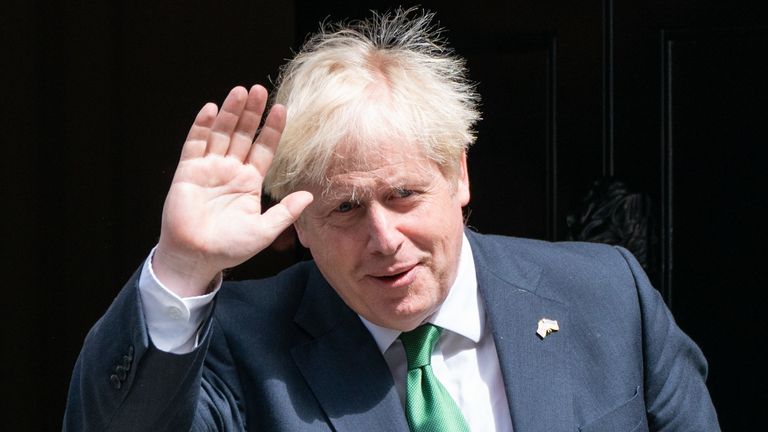The “turmoil” at the top of the Tories has led to “slow” progress in tackling Islamophobia within the party, an independent reviewer has said.
Boris Johnson launched an inquiry into discrimination within its ranks after the last election in 2019.
And in 2021, Professor Swaran Singh published his findings, saying anti-Muslim sentiment “remains a problem” for the Conservatives.
But two years later, the former equality and human rights commissioner said the raft of changes in leadership – with three Tory prime ministers in three months – had impacted his recommendations being put into place.
Politics live: ‘Hearts of cities’ will be government’s ‘biggest focus’ for housing, says Gove
In his latest review, Professor Singh said no formal process had been installed to handle discrimination complaints about senior members of the party.
He also said local-level training was “mixed”, and the response to his investigation had not necessarily improved “awareness or action on the ground”.
And he said those coming forward with allegations needed better care.
“Politics is a rough business, but there is no reason why the complaints process should be indifferent or abrasive to the experience of individuals involved,” Professor Singh wrote.
Mr Johnson promised a review into Islamophobia as part of his Tory leadership campaign – along with his competitors – after rising numbers of complaints in the party.
The former prime minister had faced criticism for his own remarks, comparing Muslim women wearing burkas to “letter boxes” and “bank robbers” in a column for the Daily Telegraph.
When he launched the review, Mr Johnson widened it to cover all forms of discrimination – a move criticised by the Muslim Council of Britain, which wanted a separate inquiry into Islamophobia.
Professor Singh found two-thirds of all incidents reported to the complaints team at the Tories’ headquarters related to allegations of anti-Muslim discrimination, and three-quarters of all incidents recorded in the complaints database involved social media.
He said high-profile incidents, such as remarks made during Lord Goldsmith’s London mayoral campaign in 2016 and Mr Johnson’s comments on Muslim women, “give the impression to many that the party and its leadership are insensitive to Muslim communities”.
The professor called for an overhaul of the Conservatives’ complaints system, more transparency and clear guidelines as to which behaviours should attract which sanctions.
‘Political upheaval’
The party accepted his recommendations in 2021, but Mr Johnson was ousted the following summer, to be replaced by Liz Truss, and she then resigned with Rishi Sunak taking over – also leading to numerous changes to the party chair.
“The two years since the publication of the report have seen considerable political upheaval in the UK,” wrote Professor Singh.
“This turmoil has impacted on the party’s efforts to implement our recommendations.
“Change took longer than expected, and challenges resulting from the interdependencies between recommendations contributed to delays in implementation.”
Read more Politics news:
Plans to build more homes in cities to be unveiled amid criticism from developers
Khan committed to ULEZ expansion but happy to look at ways to mitigate financial impact
He pointed to one case in particular, where a complainant said no sanction had been put in place after nearly a year and the offending continued “undeterred”.
“No apology has been offered to the complainant, or demanded of the respondents, despite the panel imposing other sanctions,” said Professor Singh.
On Monday, he gave the party fresh recommendations, including reviewing whether complaints against the most senior members should be handled independently.
Responding to the report, the current Conservative chairman, Greg Hands, said: “The party has made significant progress on Professor Singh’s recommendations with 25 complete and just six ongoing.
“There is however still work to be done and this is a process of continual improvement.”

